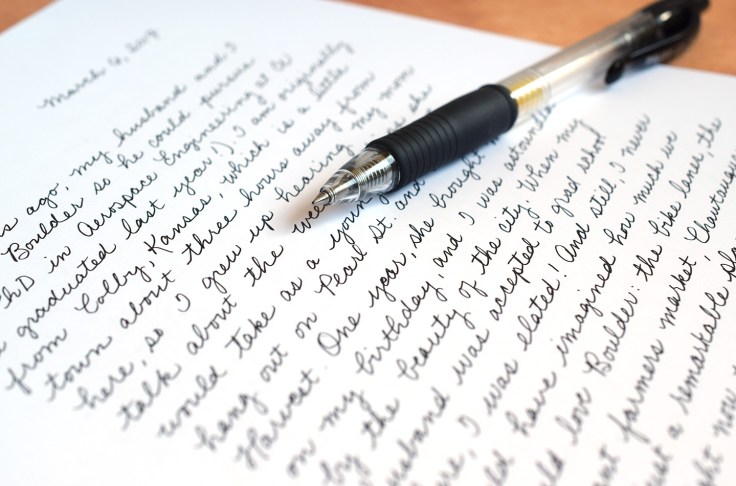
In the realm of academic writing, mastering the essential elements is crucial for effectively conveying ideas and arguments. This article explores nine key components that can enhance the coherence and clarity of your work.
From developing a concise and precise language to incorporating and citing sources correctly, we will delve into the strategies to structure your paper effectively and maintain a formal tone.
By following these guidelines, you can elevate your academic writing skills and engage your audience with confidence.
Understanding the Purpose of Academic Writing
In order to effectively engage with the academic community and contribute to scholarly discourse, it is crucial to understand the purpose of academic writing. Academic writing serves as a means of communication within the academic community, allowing researchers to share their findings, theories, and arguments with a wider audience.
Unlike other writing genres, academic writing is characterized by its formal and structured style, aimed at presenting information objectively and logically. It is essential to understand the expectations of the intended audience, which consists of fellow scholars and experts in the field.
Academic writing requires a certain level of expertise and familiarity with the subject matter, as it involves critical analysis, research, and the use of evidence to support claims. By adhering to the conventions of academic writing, authors can effectively contribute to the body of knowledge in their field.
Developing a Clear and Coherent Argument
Crafting a persuasive and well-structured argument is crucial in academic writing to effectively convey your ideas and convince your readers. To develop logical arguments, it is important to organize evidence in a coherent manner.

Start by clearly stating your main claim or thesis, and then provide supporting evidence to back it up. This evidence can be in the form of research findings, examples, or expert opinions. Make sure to present your evidence in a logical order, allowing your readers to follow your thought process easily.
Additionally, use transitional words and phrases to connect your ideas and create a smooth flow of information. By developing logical arguments and organizing evidence effectively, you can strengthen the coherence and persuasiveness of your academic writing.
Using Concise and Precise Language
When it comes to academic writing, using concise and precise language is crucial.
One way to achieve this is by eliminating unnecessary words and phrases that do not contribute to the clarity of the message.
By communicating in a clear and concise manner, the reader is able to understand the information more easily.
Additionally, precision in language use ensures that the intended meaning is accurately conveyed, avoiding any potential confusion or ambiguity.
Eliminating Unnecessary Words
The elimination of unnecessary words in academic writing is essential for achieving clarity and precision in communication. By eliminating redundancy and improving clarity, writers can convey their ideas more effectively and engage their audience.

Here are four reasons why eliminating unnecessary words is crucial in academic writing:
Enhances readability: Removing unnecessary words helps readers to grasp the main ideas quickly and easily.
Improves coherence: Streamlining the text by removing extraneous words enhances the logical flow of the content.
Increases conciseness: Using concise language allows writers to communicate their ideas more efficiently, saving readers' time and attention.
Enhances professionalism: Eliminating unnecessary words gives academic writing a more polished and sophisticated tone, demonstrating the writer's expertise and credibility.
Clear and Concise Communication
Using a limited number of words, writers can effectively communicate their ideas with clarity and precision in academic writing. Clear and concise communication is essential for improving coherence and enhancing clarity in scholarly work.
By using concise and precise language, writers can convey their thoughts and arguments in a succinct manner, making it easier for readers to understand and follow their ideas. Avoiding unnecessary words and phrases allows for a more focused and direct expression of thoughts, eliminating any confusion or ambiguity.

Additionally, using concise language helps to maintain the reader's attention and prevents them from getting lost in lengthy and convoluted sentences. Ultimately, clear and concise communication is a valuable skill for academic writers, enabling them to effectively convey their message while maintaining the reader's engagement.
Precision in Language Use
Effective academic writing requires the use of concise and precise language, as well as the ability to connect ideas using compound nouns and coordinating conjunctions.
Precision in language use is crucial for effective communication in academic writing. By using concise and precise language, writers can convey their ideas clearly and efficiently, ensuring that their message is understood by the reader. This precision allows for a more focused and cohesive argument, eliminating any ambiguity or confusion. It also helps to maintain the reader's interest and engagement throughout the piece.
When writing academically, it is important to choose words carefully, avoiding unnecessary repetition or wordiness. By using concise and precise language, writers can effectively communicate their ideas and achieve clarity in their writing.
- Use specific and concrete language
- Eliminate unnecessary words and phrases
- Avoid vague or ambiguous terms
- Be mindful of the tone and register of your writing
Properly Incorporating and Citing Sources
Properly incorporating and citing sources is an essential aspect of academic writing. To avoid plagiarism, it is important to employ strategies such as paraphrasing, summarizing, and quoting while giving credit to the original authors.
Additionally, choosing credible sources enhances the credibility and reliability of the research, while proper formatting of in-text citations ensures clarity and transparency in acknowledging the contributions of others.
Avoiding Plagiarism: Strategies
One of the key strategies for avoiding plagiarism is to ensure proper incorporation and citation of sources. Plagiarism, whether intentional or accidental, can have serious consequences in academic writing.

To help you avoid falling into this trap, here are some essential strategies:
- Understand the concept of plagiarism and its consequences.
- Properly paraphrase sources by using your own words and sentence structures while still maintaining the original meaning.
- Always cite your sources, whether you directly quote or paraphrase information.
- Use referencing styles consistently and accurately, such as APA or MLA.
Choosing Credible Sources
When selecting sources for academic writing, it is important to consider their credibility and properly incorporate and cite them within your work.
To ensure the reliability and credibility of sources, it is crucial to evaluate them carefully. Start by assessing the author's expertise in the subject matter and their affiliations. Look for reputable publishers, academic journals, and peer-reviewed articles. Evaluate the information presented for bias, objectivity, and accuracy. Additionally, consider the timeliness and relevance of the source.
Once you have chosen credible sources, it is essential to properly incorporate and cite them within your work. Use citation styles such as APA, MLA, or Chicago to give credit to the original authors and avoid plagiarism. Properly citing sources also adds credibility to your own work and allows readers to verify the information.
Formatting In-Text Citations
An essential aspect of academic writing involves incorporating and citing sources properly, ensuring the accuracy and reliability of the information presented. Properly formatting in-text citations is crucial to provide proper credit to the original authors and avoid plagiarism.
Here are some key points to consider when formatting in-text citations:
- Use the appropriate referencing style required by your institution or instructor, such as APA, MLA, or Chicago.
- Include the author's last name and the year of publication within parentheses when citing a source directly.
- When paraphrasing or summarizing information, still provide an in-text citation with the author's last name and year.
- Include page numbers when citing a specific quote or passage from a source.
Structuring Your Paper Effectively
To ensure a logical flow and organization of ideas, it is essential to employ effective structuring techniques in academic writing.

One important aspect of structuring your paper is the use of effective transitions. Transitions help to connect your ideas and guide the reader through your arguments smoothly. They can be used to introduce new ideas, provide examples, or summarize information.
Another key element is the organizational structure of your paper. This includes the overall organization of your paragraphs, the ordering of your arguments, and the use of headings and subheadings to clearly indicate the structure of your paper.
Maintaining a Formal Tone and Style
Maintaining a formal tone and style is crucial for conveying professionalism and credibility in academic writing. When writing in a formal tone, it is important to use appropriate language that is clear, concise, and free from slang or colloquialisms. Here are some key points to consider:
Use formal language: Avoid using informal or slang words and phrases. Instead, choose words that are precise and academic in nature.
Be objective: Maintain an unbiased and neutral tone throughout your writing. Avoid personal opinions or emotional language.
Use proper grammar and punctuation: Pay attention to sentence structure, grammar rules, and punctuation marks to ensure clarity and readability.
Avoid contractions: Expand contractions into their full forms to maintain a formal tone. For example, use 'do not' instead of 'don't.'

Avoiding Plagiarism and Academic Misconduct
With careful attention to detail and a commitment to ethical academic practices, students can successfully navigate the challenges of avoiding plagiarism and academic misconduct. Upholding academic integrity is essential in maintaining the freedom to express ideas and engage in intellectual discourse.
Plagiarism, whether intentional or unintentional, undermines the credibility of academic work and hinders the progress of knowledge. To avoid plagiarism, students must adhere to proper citation guidelines, giving credit to the original authors and sources of information used in their work. This not only demonstrates respect for intellectual property but also allows readers to verify the accuracy and validity of the information presented.
Editing and Proofreading for Clarity and Accuracy
By carefully reviewing and refining the content, academic writers can ensure clarity and accuracy in their work. Proofreading techniques play a crucial role in achieving this goal.
Here are some clarity improvement strategies that writers can employ during the editing process:
- Read the work aloud: This helps identify awkward phrasing, grammatical errors, and inconsistencies.
- Use concise language: Eliminate unnecessary words and phrases to enhance clarity and conciseness.
- Check sentence structure: Ensure that sentences are grammatically correct and that ideas flow logically.
- Seek feedback: Ask colleagues or mentors to review the work and provide constructive criticism.
Incorporating these proofreading techniques and clarity improvement strategies can help academic writers produce polished and accurate pieces of work that effectively communicate their ideas to their audience.
Seeking Feedback and Revising Your Work
Revise your work by actively seeking feedback from trusted sources to ensure the quality and effectiveness of your academic writing.
Seeking feedback is an essential part of the revising process as it allows you to gain different perspectives and identify areas for improvement. By seeking feedback, you open yourself up to constructive criticism and valuable insights that can help refine your ideas and arguments.

Trusted sources, such as professors, peers, or writing centers, can provide valuable feedback on various aspects of your writing, including clarity, organization, and coherence. Their input can help you identify areas of weakness and guide your revisions.
Frequently Asked Questions
How Can I Improve My Academic Writing Skills?
Improving academic writing skills requires effective research and proper citation. To enhance coherence and conciseness, focus on organizing ideas, using clear language, and providing evidence. Tailoring the writing style to the audience's preferences ensures engagement and understanding.
What Are Some Common Mistakes to Avoid in Academic Writing?
Common mistakes to avoid in academic writing include lack of clarity, poor organization, and excessive wordiness. It is crucial to ensure that ideas are effectively communicated to the reader in a clear and concise manner.
How Do I Effectively Incorporate Quotations Into My Paper?
Effectively incorporating quotations into a paper requires using quotation integration techniques and proper citation practices. It is important to seamlessly integrate the quotes into the text and provide accurate citations to support and enhance the arguments being made.
What Are Some Strategies for Organizing My Ideas in a Clear and Logical Manner?
To organize ideas in a clear and logical manner, employ structured outlines and ensure a logical progression from one point to another. This facilitates coherence and enhances the understanding of your audience.
How Can I Ensure That My Writing Maintains a Professional and Formal Tone?
To maintain a professional and formal tone in writing, it is essential to use formal language, adhere to a structured and objective style, and consider the preferences of the audience.
 Writing TipsCreative WritingJournalingSketching TechniquesBuying GuidesPrivacy PolicyTerms And Conditions
Writing TipsCreative WritingJournalingSketching TechniquesBuying GuidesPrivacy PolicyTerms And Conditions
